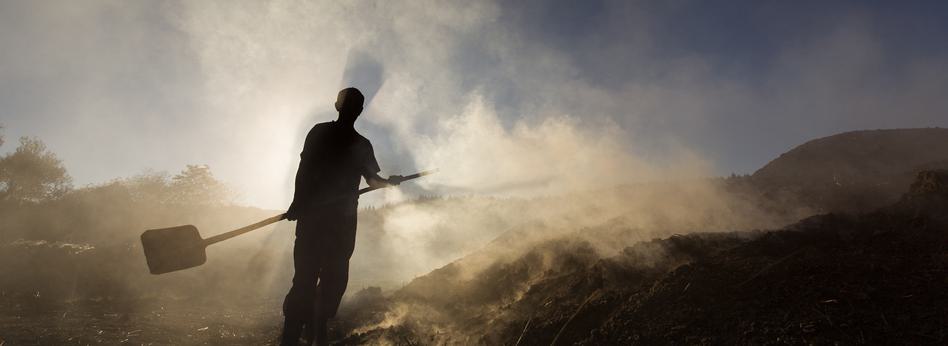Business and Human Rights Masters Course
2025 Curriculum Handbook
Introduction
Welcome to 2025's Masters Course on Business and Human Rights. This webpage provides full details and reading lists for this year’s lectures. It also provides short biographies of the faculty. All times for lectures are CET.
For those attending in person (weeks 1 and 4), the location is Ulrike Pihls Hus, Professor Keysers Gate 1, 5007 Bergen.
Practical and administrative information on the course, including zoom links for the lectures, can be found online at https://mitt.uib.no (login required).
If you would like to connect with fellow students and lecturers, past and present, please request to join the BHR Masters Course LinkedIn page: https://www.linkedin.com/groups/8968379/.
Assessment
The assessment is a semester paper/academic essay assigned at the beginning of the semester. It is mandatory to submit a draft of the exam mid-semester, on which you will receive written feedback and comments. There are no specific requirements as to how developed that mandatory submitted draft has to be, but keep in mind that the value, quality, and scope of the feedback is dependent on the effort that you put into the draft.
- The deadline for submitting the draft will be posted on the MittUiB portal in due course.
- The draft is to be submitted on the course portal, MittUiB.
- The final deadline for submitting your exam is: 1400 CET, Monday 8th December 2025.
- The final exam is to be submitted through the UiB exam portal, Inspera (see Mittuib for details).
Contacts
- Andrea Mevold Zakariassen (Course Coordinator, UiB) andrea.zakariassen@uib.no
- Salil Tripathi (Senior Advisor, Global Issues, IHRB) salil.tripathi@ihrb.org
- Therese Jebsen (Senior Advisor, Rafto Foundation) therese.jebsen@rafto.no
- UiB Videre (for administrative course-related questions) videre@uib.no
Feedback
We would be very grateful if you could provide feedback on the lectures/lecturers via this short survey.

Week 1 Day 1: Thursday 18th September
Bergen, Norway
Week 1 Day 1: Thursday 18th September
1430-1630: Introduction - Therese Jebsen, Jostein Hole Kobbeltvedt, Andrea Mevold Zakariassen, Salil Tripathi, John Morrison
- Introduction to Rafto - Therese Jebsen, Jostein Hole Kobbeltvedt
- Introduction to the UIB - Andrea Zakariassen
- Introduction to IHRB - John Morrison
- Student Introductions
1630-1645: Break
1645-1715: Course Outline – Salil Tripathi
1715-1745: Academic Writing and Exams – Andrea Zakariassen / Terje Knutsen
1800: Meet at venue, University of Bergen Department of Comparative Politics, Christies gate 15, 5007 Bergen
1800-1845: John Morrison in conversation with Salil Tripathi – Reflections on business and human rights movement
1845: Pizza, drinks
Week 1 Day 2: Friday 19th September
1000-1130: Business and Human Rights: Introduction - Salil Tripathi
Why should business care for human rights? A historical perspective setting out the rationale for the course leading up to the protect-respect-remedy framework. What are the drivers of change? Why do things need to change? Companies respond to positive and negative incentives to change their behaviour. These include statements of ethics and values, consumer activism, shareholder activism, trade union activism, multi-stakeholder initiatives, regulatory changes, legislation.
Required reading:
- Universal Declaration of Human Rights, United Nations (1948)
- UN Guiding Principles on Business and Human Rights, John Ruggie, OHCHR (2011)
Additional reading::
- On the Margins of Profit: Rights at Risk in the Global Economy, Human Rights Watch (2008)
- The Arc of Human Rights Priorities. A New Model for Managing Risk, The Danish Institute for Human Rights (2011)
- Executive Summary: Human Rights: Is it any of your business? Amnesty International and the Prince of Wales International Business Leaders’ Forum (2000) - NB this is a set of screenshots so the page arrows don't work!
1130-1200: Break
1200-1315: Expanding Web of Liabilities - Mark Taylor
Hundreds of human rights and environmental cases against corporations have been launched in countries around the world in the past two decades. This body of what might be called 'counter corporate litigation' involves legal actions seeking to hold business actors to account for alleged violations human rights and involvement in international crimes, or harms to the environment and biosphere. Sometimes these legal actions seek remedies for victims, sometimes they are a form of strategic litigation. Usually they are both.
In this lecture, I will focus on mapping this "expanding web of liabilities", in particular the main patterns of counter corporate litigation and identify the kinds of business activity that give rise to litigation. We will discuss what these patterns tell us about the priorities for business regulation and legal reform, including the integration of human rights and the environment into legal instruments governing corporate activities, transnational approaches to corporate accountability, and a willingness to challenge unsustainable business models.
Reading:
- The Inconvenient Truth About Business, Conflict, and International Crimes in Gaza Dr. Shahd Hammouri and Mark Taylor, IHRB Comment May 2024
- Obligations of Third States to Prevent and Punish Genocide in Gaza, Dr Irene Pietropaoli, Senior Fellow in Business and Human Rights, British Institute of International and Comparative Law (BIICL), 5 June 2024
- Commercial Crime in War, War Economies and International Law (Cambridge, 2021) Mark Taylor
Additional resources:
- Red Flags, www.redflags.info
- Dutch Court Orders Halt to export of F 35 Parts to Israel, February 24 2024, Reuters
- Risks and Considerations for Doing Business in the Russian Federation and Russia-Occupied Territories of Ukraine, US Department of State, February 23, 2024
- Lundin case in Swedish courts, including podcast on the case Pax for peace
- Strategic Litigation, Trial International
- 2024 Global Human Rights Ligitation Report,OSJI
- IBA War Crimes Committee Shines Light on Corporate Liability, International Bar Association
1315-1415: Lunch Break
1415-1530: Business, Human Rights and Environment - John Morrison
One of the key ways in which businesses can "know and show" that they respect human rights is by having in place human rights policies and due diligence processes aligned with the UN Guiding Principles on Business and Human Rights. Over the years, critics have said that business practice has moved too slowly, leading to calls for mandatory measures to require businesses to implement more meaningful HRDD. Recent years have seen an expanding web of new laws and regulations: first aimed at disclosure of steps being taken to counter abuses such as modern slavery, and more recently imposing mandatory requirements for due diligence and access to remedy that are clearly inspired by the UNGP.
The EU's Corporate Sustainability Due Diligence Directive, adopted in 2024, is the most wide-ranging and ambitious example to date. Will these legal measures be a positive force in improving business respect for human rights and holding them to account for adverse impacts across their value chains? Or will these laws prove to be little more than a driver for tick-box compliance, or worse still result in perverse outcomes that fail to improve the outlook for individuals and communities who are adversely affected by transnational business?
Reading:
- UN Human Rights "Issues Paper" on legislative proposals for mandatory human rights due diligence by companies (June 2020)
Optional:
1530-1600: Break
1600-1715 Diplomat, Executive, Activist, Prisoner: Vicky Bowman
Vicky Bowman, Senior Adviser at IHRB, worked variously as a British diplomat and in the European Commission, for a major mining company, Rio Tinto, and set up an NGO platform, the Myanmar Centre for Responsible Business, which led her to spend three months in a Myanmar jail. Vicky is now involved in various multistakeholder initiatives on business and human rights, in mining, tech and private security. She and Salil Tripathi will reflect on the value of working for different types of stakeholder, and how this enhanced her work in Myanmar.
Reading: None
Week 1 Day 3: Saturday 20th September
1000-1115: Introduction to the Business and Human Rights Framework: the Alphabet Soup of BHR - Anita Ramasastry
International human rights law is normative. The frameworks that apply to business and human rights are drawn from UN declarations, conventions, protocols, and norms. The class will show the evolution in the UN system leading up to the negotiations for a binding treaty.
Required reading:
Additional suggested reading:
- Just Business: Multinational Corporations and Human Rights, John Ruggie (2013)
1115-1145: Break
1145-1300: Compliance Across Jurisdictions – Joanne O’Donnell
The presentation will provide a comprehensive overview of key human rights and environmental regulations across the EU, USA, and globally that are integrated into the various stages of the product lifecycle from raw material sourcing, workforce, design and manufacture, to advertising and waste/disposal. The goal is to equip participants with the knowledge to navigate these complex requirements by outlining key obligations and recent developments.
The presentation will also cover the shift from voluntary to mandatory compliance, as well as trends such as stricter enforcement and increase in litigation. In addition, it will also address challenges and best practices in ensuring human rights and environmental regulatory compliance. The presentation will conclude with some ‘key takeaways’ and tools to help attendees navigate the continued avalanche of new laws and regulations.
Reading:
- Supply Chain Due Diligence: An Overview of Key Developments in the EU in 2024 and Areas to Watch in 2025, Joanne O’Donell, (December 2024)
- ESG 2024, A Year in Review, Hannah Janknect & Alex Li, Compliance and Risks, (February 2025)
- EU Hits Pause: Sustainability Reporting and Due Diligence Obligations will be Delayed, Hannah Janknect, (April 2025)
- Prepare to Repair, Navigating 2025 Right to Repair Requirements in the EU, US and Beyond, Michelle Walsh, Kelly Bugiera, Samantha Anguiano, Compliance and Risks (May 2025),
- How Do the Pieces Fit in the Puzzle, Making sense of EU regulatory initiatives related to business and human rights, Danish Institute for Human Rights, (April 2024)
- EU Corporate Sustainability Due Diligence Directive, EU Commission overview (June 2025)
1300-1400: Lunch break
1400-1515: Norwegian Pension Fund and Ethical Responsibility of Investors - Pia Rudolfsson Goyer
Goyer's lecture is about how investors work with human rights risk in their investment work, with a particular emphasis on the Norwegian oil fund. Goyer shares her experiences from her work for the Fund's Council on Ethics, where she worked with human rights cases for 12 years.
Reading:
1515-1545: Lunch break
1545-1700:Threats to Business and Human Rights Agenda from a Deglobalising World - Anita Ramasastry
Reading:
- Business and Human Rights Treaty: a decade of struggle for corporate accountability - CIVICUS LENS - short and recent blog post
- Skim current version of the treaty - attached
- If students want to see more - the treaty web page is here: Open-ended intergovernmental working group on transnational corporations and other business enterprises with respect to human rights | OHCHR. The current session was the 11th session
Week 1 Day 4: Sunday 21st September
1000-1115: Why Should Companies Do Due Diligence? – Ron Popper (online)
Companies need to carry out human rights due diligence to prevent, mitigate and, if necessary, remediate potential or actual harms to people impacted by their operations and business relationships. What does effective due diligence look like, and which core steps do companies need to take to ensure their due diligence governance and approach is more than a tick-box exercise? In this introduction to due diligence, Ron will draw on his own experience as a business and human rights practitioner, and examine what serious due diligence looks like, some of the internal and external expectations of company performance, and provide examples from different parts of the world of what happens when a company fails to carry out appropriate due diligence or ignores expert advice.
Reading:
- The UNGPs, particularly UNGP 17-24
- OECD Due Diligence Guidance (2017)
1115-1145: Break
1145-1300: Why Sustainability and Compliance with International Standards Matter for all Companies - Malin Helgesen
In this session, we will discuss how the rapid changes to our physical environment, coupled with the decline of democracy and rule of law, are leading to substantially decreased access to raw materials, productive workforces, a stable financial system and other fundamental bases for business resilience and growth. In thshiftis context, we will explore whether sustainable business practices impede competitiveness or can act as a catalyst for business resilience and growth through the implementation of international human rights standards such as the UN Guiding Principles and the OECD Guidelines for Multinational Enterprises.
Reading - compulsory:
- The UN Guiding Principles on Business and Human Rights
- The OECD Guidelines for Multinational Enterprises
Voluntary:
- Shift: Climate Action and Human Rights - How the UN Guiding Principles can help companies respect human rights when responding to climate change.
- Transformative business models: Case study on Veja by the Geneva Center for Business and Human Rights
- Blog by Günter Thallinger, Allianz SE, on Climate, Risk, Insurance: The Future of Capitalism
1300-1400: Lunch break
1400-1515: HR Due Diligence in the Garment Supply Chain – Andrei Vasiliev
In this lecture, Andrei will explore how meaningful stakeholder engagement can be integrated into the day-to-day practice of human rights due diligence. Drawing on field experience, he will share lessons from efforts to provide access to remedy and manage critical human rights cases—highlighting both the operational challenges and the potential for shared accountability in driving long-term change in supply chains.
Reading:
- BESTSELLER Due-diligence report, which gives insights and details into our Due-diligence process, and specific details into our systems and findings.
1515-1545: Break
1545-1700: Child Labour in Supply Chains (Case Study) – Salil Tripathi
The class will discuss the case of child labour use in supply chains. The lecture will also cover other instances, including Coca-Cola and sugar in Central America, garment industry in India, and sports goods manufacture in Pakistan.
Reading:

Week 2: Fri 10th-Sun 12th Oct
Virtual
Week 2 Day 1: Friday 10th October
1300-1415: The Rise of China and its Impact on Climate and Human Rights - Isabel Hilton
China is now the world’s second largest economy and a major global investor. It also has a distinct approach to human rights and an announced intention to rewrite the global rules on this and a number of other established norms. Can it succeed and what would it mean for human rights?
TBC Reading:
- Xi’s National Security Agenda
- Reining in a Liberal UN
- Integrating Stability Maintenance Into Comprehensive Governance
TBC Additional optional resources:
- China’s approach to Europe? Anti-diplomacy, Isabel Hilton, Prospect Magazine (2023)
- hongkongfp.com
- Future of human rights in Hong Kong (2024)
1415-1445: Break
1445-1600: Oil and Nigeria – Nnimmo Bassey
Oil, Human Rights, the Environment and the Niger Delta explores the state of oil in the Niger Delta, by examining the current state of play in the region, the continued impunity and recent landmark reports on the human and environmental health conditions. The lecture also looks at “divestment” moves by international oil companies to avoid responsibilities for almost 7 decades of environmental genocide. Also reviewed are the future of fossils and implications forthe wider region. Students will gain a deeper understanding of the Niger Delta struggles for socioecological alternatives and equally look at lessons for the rest of Africa.
Optional reading:
- Manifesto of the Niger Delta Socioecological Convergence
- Video documentary by HOMEF: Toxic Legacy: A Tale of Blood and Oil
1600-1630: Break
1630-1745: Gender-based Discrimination and Corporate Issues - Harpreet Kaur
TBC This class will examine gender-based discrimination and the role of companies to prevent discrimination, harassment, and bullying, and ensuring equality for workers, consumers, and the society. The class will also introduce the gender guidance on the UNGPs from the UN Working Group.
Reading:
- Gender guidance for the Guiding Principles on Business and Human Rights, OHCHR
- Gender-based framework on business and human rights, Surya Deva (2019)
- Women in Business and Human Rights: A Mapping of topics for state attention in UNGPs
1745-1815: Break
1815-1930: Just Transitions: What Communities Want; What Businesses Can Learn - Haley St Dennis
Transitions succeed when they are shaped from the ground up. This lecture highlights stories of just transitions in practice: from coal closures in Australia to activating the informal economy in India, forthcoming features on housing decarbonisation in Spain and agroforestry solutions in Brazil. We will also draw on practitioner insights into the “costs of green conflict” in renewable energy projects globally, and implementing the “justice” dimensions of catalytic climate finance platforms like Just Energy Transition Partnerships (JETPs) in South Africa and Indonesia. Together these perspectives help reveal how businesses can better align with community priorities to build trust-based and resilience-oriented pathways.
Reading:
Week 2 Day 2: Saturday 11th October
1300-1415: Cultural Rights and the Extractive Sector and Wider Indigenous Issues – Deanna Kemp
TBC In May 2020, the mining company Rio Tinto destroyed rock shelters of considerable cultural and historic significance at Juukan Gorge, near the Brockman Iron Ore Mine, in Pilbara, Western Australia. Human rights and environmental groups protested; the community was outraged; investors revolted; the company apologized; and major personnel changes took place. The class will discuss the case.
Reading:
- Juukan Gorge inquiry puts Rio Tinto on notice, but without drastic reforms, it could happen again, The Conversation (2020)
- Rio Tinto’s statement on Juukan Gorge
- Critical reflections on the Juukan Gorge parliamentary inquiry and prospects for industry change
1415-1445: Break
TBC 1445-1600: Dalits and Discrimination – Beena Pallical
Over 210 million people live across Asia today who face caste based discrimination or discrimination based on work and descent; that is, basis of their birth into certain castes/social groups and their traditional ‘unclean’ occupations of the lowest status. They are distinguished by their segregated living spaces with severely restricted access to public and private services of housing, water and sanitation, health, education, markets, land and employment. As a consequence, there is a large gap between the general population and populations facing discrimination based on work and descent in terms of most human development indicators, with women from the discriminated communities at the bottom of the scale. In addition, in many of the affected countries persons facing discrimination based on work and descent also are targeted for severe forms of violence based on their excluded identity, often with impunity. The community in South Asia are called Dalits and are engaged in the most ‘unclean’ and menial occupation. Incidence of violence remain persistent in different forms like murder, individual and gang rape, physical assault, verbal abuse and discrimination in various sectors like education, jobs in the corporates and gender and caste based discrimination continue unabated. Women in particular experience many forms of discrimination arising from their low social position in the caste system. Similar forms of discrimination exist in Africa, Latin America and Europe.
This session will delve into the issues regarding caste and Descent based discrimination and how this has percolated to the corporate and private sector. While laws exist the businesses are caste blind and as a result several cases of discrimination has emerged not just in Asia but also in countries like the US. This session will discuss on what companies can do, what mechanisms they can have to address prevent discrimination in the workplace.
Reading (most of these are short articles):
- Caste in India: Their Mechanisms, Genesis and Development in “Writings and Speeches Vol. 1”, B R Ambedkar - It is a large volume; please read pages 3 to 22
- Cisco Caste Discrimination lawsuit in Silicon Valley, Anahita Mukherjee, The Wire
- Video: I am Dalit, How Are you?
- Corporate India has a caste problem. And it is time to talk about it, Indian Express (2025)
- The Ambedkar Principles to Address Caste Discrimination in the Private Sector
- Base Code Guidance – Caste in Global Supply Chains, Ethical Trade Initiative
- Caste remains off-limits in corporate India’s drive for diversity, FT (2024)
1600-1630: Break
1630-1745: LGBT (TBC) - Frank Mugisha
What role can business play to mitigate harm from discrimination against vulnerable groups such as LGBTI people? Frank Mugisha of Sexual Minorities in Uganda will walk through the role of companies and what business can do. Salil Tripathi will introduce the UN standards of conduct for business with regard to LGBT rights.
Reading:
- Tackling Discrimination Against LGBTI People: Standards of Conduct for Business, United Nations. The report is long; recommended reading - the executive summary
- Strengthening the Economic Case, Open for Business (2022). This is a long report – please see executive summary – pages 4-5 and the Global Situation (up to page 19), and familiarise yourself with the key issues and drivers.
- The 27 Propositions, Open for Business
- Channels of Influence, Open for Business
- Opening Up The World: How Multinational Organizations Can Ascend The Maturity Curve On LGBT+ Rights, David Glasgow and Kenji Yoshino
- 2021 Universal Periodic Review Report, Pink Dot SG and Oogachaga. This reading is intended to give you an overview about the situation in Singapore. Reading the comics will be sufficient.
Additional reading:
- The Economic Case for LGBT+ Inclusion in Central and Eastern Europe (CEE), Open for Business
- The Economic Case for LGBT+ Inclusion in the Caribbean, Open for Business
- Impact report 2021-2022, Open for Business
1745-1815: Break
1815-1930: Diversity, Equity & Inclusion and Business & Human Rights - Erika George
The current U.S. Government is attempting to rewrite the rules of Diversity, Equity Inclusion to align with a “Make America Great Again” worldview: what does that mean for the world? This class will unpack the impact of the policy shift in the U.S. and the varied ways companies, campuses, and courts are responding to demands that DEI be dismantled. It will provide an overview of the broader consequences of redefining organizational priorities in response to political pressures. Corporate purpose and values as reflected in the policies, practices, and public statements of business enterprises on inclusion, diversity, equity and access issues will be reviewed through the responsibility to respect framework of the United Nations Guiding Principles on Human Rights.
TBC Reading:
- Reckoning: A Dialogue about Racism, AntiRacists, and Business & Human Rights, Erika George, Washington Intl Law Review (2021)
- Risks of retreat: The enduring inclusion imperative, Alixandra Pollack, David Glasgow, Tara Van Bommel, PhD, Christina Joseph & Kenji Yoshino (2025)
- UN Working Group on BHR Statement on DEI (2025)
- DEI in Transition: 2025 Corporate Diversity Disclosure Trends, Harvard Law School Forum on Corporate Governance
Week 2 Day 3: Sunday 12th October
1300-1415: Migrant Labour/Forced Labour in Supply Chains - Bonny Ling
In spite of laws abolishing forced labour and regulatory changes to protect migrant workers, many industries rely on temporary foreign workers who are vulnerable to labour abuses. They often work under high risks of debt bondage through a flawed system of recruitment and then face abusive living and working conditions, exploitation, withholding of wage, retention of personal identification, threats and intimidation and violence. The lecture will introduce the scale of the problem, the industries that are particularly vulnerable, the complexities posed by the pandemic, and raise questions about what can be done about the situation.
Required readings:
- ILO indicators of Forced Labour, International Labour Organization (October 2012)
- Forced Labour Products, European Council (December 2024)
- Pages 29-42 The Role of Supply Chains in the Global Business of Forced Labour, Genevieve LeBaron, Journal of Supply Chain Management, no. 2 (2021)
- Taiwan: 10 migrant fishers working on shipping vessel Yu Fu allege they are owed USD 80,850 in unpaid wages, Business & Human Rights Resource Centre (August 2024)
Additional readings:
- Forced labour: A Synthesis Report – Advances in Quantifying Forced Labour Across the World and Sectors, International Labour Organization (2024)
- Recognising forced labour risks in global supply chains: Sedex findings from 100,000 social audits, October 2021
- 4-min clip (made available by the Thessaloniki International Film Festival) of Buoyancy, written and directed by Rodd Rathjen; produced by Kristina Ceyton, Samantha Jennings, Rita Walsh (2019)
- Such brutality’: tricked into slavery in the Thai fishing industry, Steve Dow, The Guardian (2019)
1415-1445: Break
1445-1600: Accountability: Ethical Trade and Sustainable Supply Chain: - Heidi Furustøl
TBC Globalisation has created complex supply chains where goods are manufactured in distant parts of the world and sold in distant consumer markets, with many intermediaries in between, including agents and brands. How practical is it for supply chains to reflect ethical behaviour and conform to international standards, and what powers do consumers have? This lecture will include an introduction to the new Norwegian Transparency Act.
Reading:
- Human-Rights-Due-Diligence-in-Challenging-Contexts-2024.pdf introduction, cases. Resources. Business’ responsibilities in armed conflicts and wars. Read Salling Group in Israel-Palestine and Primark in Myanmar.
- Transparency-and-Accountability-2024-2.pdf Ethical Trade Norway good practice publication on due diligence for responsible business conduct provides guidance, links to useful resources and excerpts from 57 of our members’ due diligence statements. Read introduction and step 3 and 6
1600-1630: Break
1630-1745: Human Rights Across Complex Supply Chains – Duncan Warner
The products we buy and use every day often come from some of the most recognised retailers in the world. As consumers, we expect these companies to have carefully considered a range of factors in how they source and produce these goods. Yet, retail supply chains are inherently complex and nebulous. They often stretch across the globe, involve many tiers, and can be characterised by opaque practices that impact vulnerable rightsholders who may not be afforded the protections many take for granted. This complexity can limit a company’s ability to trace impacts, deliver suitable due diligence and effectively leverage influence – so when there are so many products and risks where do you start? How do you generate business engagement and commence the process for mapping, understanding and remediating rights holder impacts? When you find them, what do you do and who can support you?
This lecture will explore how large, diverse businesses such as retailers can align with the UN Guiding Principles on Business and Human Rights (UNGPs). It will examine the practical and ethical challenges they face, from limited traceability to the difficulties of operating responsibly potentially many tiers and time zones away from those most at risk of impact whilst ensuring businesses understand the risks and realities of impactful remediation and obligations based on actions and omissions.
Readings:
- Asda’s Standards for Suppliers - click through to document
- Asda’s - Human Rights Policy - click through to document
- Asda's approach to human rights - same link as above but full webpage
1745-1815: Break
1815-1930: Just Transitions and Climate Finance - Nick Robins
The climate crisis poses a significant challenge to human life. But steps taken to mitigate those risks also create human rights challenges, including loss of jobs and the need for retraining workforce. Governments and businesses have to undertake significant cost-benefit analyses to arrive at just solutions that seek to protect the planet while ensuring livelihoods. The lecture will look at the role finance can play and how human rights framework can inform policy-making. Participants are asked to identify a practical example from their own experience where the just transition imperative has come alive which can then be discussed in the session.
Reading:
- Climate Change and the Just Transition: A guide for investor Action - LSE report with the Principles for Responsible Investment (PRI), the International Trade Union Confederation (ITUC), Harvard Kennedy School (2018)
- Making Transition Plans Just LSE guide on how to embed the just transition into financial sector net zero plans (2022)
- ILO/LSE Just Transition Finance Tool for bankers & investors, launched at COP27 (2022) LSE jointly with the International Labour Organization
- Just Finance India mobilizing private investment for the just transition, LSE with British International Investment, the Environment Management Centre (EMC) and Suranjali Tandon (2023)
- Leveraging the Spectrum of Just Transition Finance, LSE and IHRB (2024) (and event video: https://justtransitionfinance.org/event/what-next-for-mobilising-finance-for-just-transitions/)

Week 3: Fri 31st Oct-Sun 2nd Nov
Virtual
Week 3 Day 1: Friday 31st October - Technology
1300-1415: Tech Privacy and Human Rights - Iain Levine
Protection of human rights in the digital world is an existential challenge for the human rights movement , especially with the rapid development of AI. The class will cover some of the critical opportunities and challenges for human rights in the digital world, will track some of the key geopolitical trends impacting the discourse around digital rights and then will deep-dive into my own experiences working for the human rights team at Meta. We will look at the relevance of the UNGPs for developing a human rights policy; human rights due diligence and impact assessments; the challenge of stakeholder engagement - especially with underrepresented communities; protecting human rights defenders, racial and religious minorities, women and LGBTQ communities; crisis and conflict. We will also touch on the respective role of advocates within the company and those outside and how their efforts frequently don't align.
Reading:
- Meta human rights policy
- Meta human rights report 2023 (executive summary and section on human rights risk management)
- Fundamentals of a Human Rights-Based Approach to Generative AI (section 4)
- AI's potential to advance human rights
1415-1445: Break
1445-1600: Regulating Digital Rights: How Multi-stakeholder Collaboration in Technology can Support Freedom of Expression and Privacy - Vicky Bowman
Tech companies and users need to be regulated, but how to strike is the right balance between protection and overreach? This session will draw on current challenges and examples, and the role of the Global Network Initiative in promoting accountability and good practice.
Reading:
- https://blogs.microsoft.com/on-the-issues/2025/05/15/statement-technology-israel-gaza/
- https://www.somo.nl/telenors-irresponsible-disengagement-from-myanmar/
- https://globalnetworkinitiative.org/resources/
1600-1630: Break
1630-1745: AI and BHR - Salil Tripathi and Scott Jerbi
This session aims to stimulate a discussion on the profound and multifaceted impacts of artificial intelligence (AI) on human rights, corporate responsibility and sustainability. To what extent are companies who develop and use AI tools currently identifying and addressing risks to rights-holders? How should governments, businesses and other stakeholders be working together to prevent AI related harms and maximise benefits for all, and how can international human rights principles and standards be part of the governance of this emerging domain?
A host of AI risks must be confronted, from disinformation and threats to privacy, reinforcement of and potential weaponisation of biases, to widespread discriminatory outcomes and job losses, as well as risks linked to monetisation of data, use in armed conflict, and significant energy consumption and related risks of new AI data centers, among others. At the same time, AI holds enormous potential for our world if responsibly deployed, and AI tools could help companies in undertaking ongoing human rights due diligence.
This session is an opportunity to discuss early efforts by businesses and other actors to develop and integrate responsible AI principles that balance innovation with sustainability and rights protection. In addition to examples by individual companies, we will discuss emerging governance initiatives and regulatory frameworks —such as the EU AI Act, OECD AI Principles, UNESCO’s recommendations on AI ethics, and the UN’s Global Digital Compact and Global Dialogue on AI Governance — with the aim of unpacking whether human rights principles and standards such as the UNGPs are part of ongoing efforts in ensuring greater corporate transparency, accountability, and fairness in AI development and deployment.
Suggested Readings
- Setting the Stage for Responsible AI framework (McKinsey & Co)
- Building a Responsible AI framework (Harvard)
- California's new AI Safety Law (Techcrunch)
- The Global Landscape of AI Safety Institutes
- AI’s Carbon Footprint and What Businesses Can Do About It, Harvard Business Review, 2023
- Regulating Military's use of AI is in everyone's interest, Michael Horowitz, FT
- Responsible AI and Approach (Microsoft) https://www.microsoft.com/en-us/ai/principles-and-approach
- AI Principles (Google)
Regulatory materials:
- European Commission, The Artificial Intelligence Act (2024)
- Recommendation on the Ethics of Artificial Intelligence, UNESCO, (2021)
- Global Dialogue on AI Governance (UN)
Additional optional readings:
- How Moral Can AI Really Be? (Paul Bloom, The New Yorker)
- If AI Systems Became Conscious, Should they have Rights? (Yuval Noah Harari, NY Times)
- The Artificial State (Jill Lepore, New Yorker)
- Kate Crawford, Atlas of AI: Power, Politics, and the Planetary Costs of Artificial Intelligence (Yale University Press, 2021)
- Shoshana Zuboff, The Age of Surveillance Capitalism (PublicAffairs, 2019)
- Mustafa Suleyman and Michael Bhaskar The Coming Wave (Crown, 2025)
- Sasha Luccioni et al., “Estimating the Carbon Footprint of Machine Learning Training Events” (arXiv, 2019)
1745-1815: Break
1815-1930: Unpacking Fairphone: Systemic & Circular Thinking for Ethical Electronics – Sean Ansett
In a world addicted to rapid technological turnover and opaque supply chains, Fairphone stands as a radical experiment in ethical consumer electronics. This session explores the Fairphone journey as a living case study in systemic and circular thinking.
Through the lens of Fairphone’s bold experiment, we’ll explore how a single company is attempting to rewire an exploitative system by embedding human rights and circular economy principles into its core business model. Key themes include responsible mineral sourcing, the right to a living wage, labor rights in global supply chains, product modularity as a path to consumer empowerment, and designing out waste.
Through Fairphone’s evolution, students will gain insight into the interconnected nature of social, environmental, and economic challenges in the electronics sector.
This class challenges will challenge participants to critically assess the role of business in upholding—or undermining—human rights, and to explore the potential and limits of ethical innovation in high-impact industries.
By the end of the session, participants will be able to:
- Analyze how systems thinking is applied in real-world sustainable business models.
- Evaluate the trade-offs and tensions in ethical sourcing and production.
- Map circular economy strategies in product design and supply chains.
- Reflect on the role of consumer behavior, policy, and activism in transforming industries.
Format: Interactive case study from one of the company’s founding team members.
Reading:
- Our Impact Report 2024, Fairphone
Week 3 Day 2: Saturday 1st November
1300-1415: National Contact Points as Remedy - Frode Elgesem
The lecture will follow up on the importance of accountability and access to remedy for victims of business-related human rights impacts and examine the OECD National Contact Points as a non-judicial complaint mechanism and its effectiveness in offering remedy.
Required reading:
- UN Guiding Principles on Business and Human Rights, Pillar 3: Access to Remedy with commentaries
- pp 58 – 73, OECD Guidelines for Multinational Enterprises on Responsible Business Conduct, (2023 Edition) Part II with commentaries
- Confronting Challenges to Substantive Remedy for Victims: Opportunities for OECD National Contact Points under a Due Diligence Regime Involving Civil Liability, Karin Buhman, researchgate.net
Optional resources:
- State of Remedy 2023, OECD Watch
- Justice from Below: Struggles Against Corporate Misconduct in the National Contact Point System | Nordic Journal of Criminology, Elin Jönson, idunn.no
- OECD National Contact Points as Sites of Effective Remedy: New Expressions of the Role and Rule of Law within Market Globalization? Bhatt and Türkelli, Business and Human Rights Journal
- Access to Remedy in Cases of Business-related Human Rights Abuse: An Interpretive Guide, Office of the UN High Commissioner for Human Rights, 2024
1415-1445: Break
1445-1600: Role of Investors in Enforcing Accountability – Elisabeth Andvig
The lecture will assess how Norway's systematic approach to transparency and engagement has developed over time, examining both successes and limitations of this model. Attendees will gain insights into evaluation methodologies, engagement strategies, and practical implementation, offering lessons for institutional investors considering how different approaches to responsible investment might align with their own contexts and objectives while balancing sustainability goals with fiduciary responsibilities. Different milestones in defining the ethical criteria for the Norwegian Government Pension Fund, looking at minority shareholder responsibility, and stewardship practice in the context of ESG-backlash will be explored.
Reading:
- Recent decisions clarify investor responsibility to address human rights concerns, Responsible Investor 2013
Suggested additional reading:
- Responsible Investment 2024
- Ethical guidelines - regjeringen.no
- 2022.09.05_gpfg_guidelines_observation_exclusion
- Cognyte Software Ltd – Council on Ethics
- Specific Instance NCP NOR NBIM Posco
- OECD RBC-for-Institutional-Investors.pdf
1600-1630: Break
1630-1745: Corruption, Business, and Human Rights - Morten Koch Andersen
This lecture will introduce students to the social practice of corruption and its relations and interactions with human rights. It will introduce students to different theoretical aspects of corruption and how they relate to human rights perspectives. The issue of organised and cross-border/transnational crime in the intersection with state and businesses will be used as an entry point to situate the theoretical approaches in context and unfold analysis and discussions.
Reading:
- The Limitations of a Human Rights Approach to Corruption, Cecily Rose
- Corruption as a Violation of International Human Rights, Anne Peters
- Anti-Corruption and Human Rights - How to Become Mutually Reinforcing? Raoul Wallenberg Institute, 2017
- Why Corruption Matters in Human Rights, Morten Koch Andersen, 2018
1745-1815: Break
1815-1930: The Human Rights Impacts of Tariffs on Supply Chains – Sanchita Banerjee Saxena
Despite the claims of many global brands to engage in responsible sourcing practices, it is far more common for them to engage in transactional or indirect relationships with their suppliers in the global South. Research has shown, however, that a partnership or direct relationship model can create better business opportunities for both sides, as well as contribute to better labor conditions, especially during times of crisis. This class will introduce the concept of shared responsibility in global supply chains by focusing on the impetus for rethinking these relationships, the reality of the partnership model as it stands, and what elements are needed to truly build collaborative and resilient relationships. The class will include a lecture on these topics and small group work to brainstorm a new partnership model.
Reading:
- Unprecedented tariffs call on us to reimagine more equitable supply chains, IHRB, May 2025
- Why Top Apparel Brands Fall Short in Supplier Partnerships. Supply Chain Dive, Jan 2024
- Are Fashion’s Buying Practices Really Improving Vogue Business
Week 3 Day 3: Sunday 2nd November
1300-1415: Business and Human Rights – The Role of Human Rights Defenders – Therese Jebsen and Salil Tripathi
Human rights defenders and businesses have historically viewed one another with deep suspicion. Business often sees HRDs as disruptors who want to stop projects from going ahead, or pressing demands that make normal business operations difficult. Even their peaceful activism leads some businesses to call upon security forces for protection. The security forces have in several instances used force disproportionately, arresting HRDs. In some cases, there have been extra-judicial executions. Lawsuits too have been filed. Activists see businesses as entities who are powerful and connected with the state, and part of the problem, not part of the solution.
Many companies have moved on from that divisive approach, and have either initiated stakeholder consultation programmes in which they invite HRDs who are critical of the companies' activities, or defended their right to dissent. Some believe that HRDs and businesses have common grounds and common interests, such as the rule of law and a level playing field.
The class will examine the emerging landscape, including the notion of 'shared space,' and take part in a set of exercises about what a company should do in three specific cases.
Readings:
- Searching for Common Ground (pages 5-21 and Conclusions and Recommendations). (Cases are optional readings).
- Shared Space Under Pressure: (pages 6-16)
Optional Additional Readings:
- Working Group's documents
- SLAPP cases
- SLAPP database - https://www.business-humanrights.org/en/from-us/slapps-database/
- Global Witness database: https://globalwitness.org/en/campaigns/land-and-environmental-defenders/documenting-killings-and-disappearances-of-land-and-environmental-defenders/
1415-1445: Break
1445-1600: What Does the Field of Business & Human Rights Offer Workers and Trade Unions? – Ruwan Subasinghe
The vast majority of workers producing goods and providing services to the largest global multinationals are not directly employed. Instead, multinationals operate through contractual relationships within a non-transparent network of suppliers. This often makes them immune from legal accountability, as there is often no legal cause for action when violations occur in supplying companies. At the same time, workers are also often impeded from seeking justice against local companies, which are often under-resourced, thus making them effectively judgment-proof. Moreover, multinationals tend to prefer business relationships in countries with low wages, weak labour laws and ineffective judicial systems. Trade unions fighting to improve conditions in these countries are up against foreign chambers of commerce blocking minimum living wages or regulations designed to ensure safe and secure work.
The UNGPs, the OECD MNE Guidelines, the ILO MNE Declaration, and current and emerging corporate accountability legislation at the national, regional and global level offer trade unions and workers a concrete framework to effectively realise their human rights, including the enabling rights to freedom of association and collective bargaining. In this lecture, we will explore trade union strategies, success stories and the ever-increasing challenges in this space.
Reading:
- UN Guiding Principles on Business and Human Rights at 10 – Towards a Decade of Implementation (on the trade union view of the UNGPs 10 years after their adoption)
- Towards mandatory due diligence in global supply chains, ITUC, 2020 (TUs' 8 principles for effective mHRDD)
- Protecting Workers' Rights in Global Supply Chains: Will the EU's Corporate Sustainability Due Diligence Directive Make a Meaningful Difference? Jeffrey Vogt, Ruwan Subasinghe, Cornell Int’l L.J, August 2024
- Towards a binding treaty on transnational corporations and other business enterprises, Makbule Sahan, Ruwan Subasinghe, Equal Times, 2017
- Uber and Lyft in California: A Case Study on Irresponsible Business Conduct, Ruwan Subasinghe 2020
1600-1630: Break
1630-1745: OECD Guidelines as a Framework for Business and Human Rights (with group exercise) – Bettina Braun
The session will focus on how the OECD Guidelines for Multinational Enterprises and OECD Guidance on Responsible Business Conduct can provide practical support to enterprises in implementing risk-based due diligence, aligned with international standards. The OECD has developed guidance and tools to explain key elements of due diligence, such as the involvement framework, and provides sectoral guidance. A class exercise will dive deeper into step 6 of the OECD due diligence cycle – providing for and cooperating in remediation.
Reading:
- OECD Due Diligence Guidance for Responsible Supply Chains in the Garment and Footwear Sector | OECD p. 93-102
- Final Statement of the NCP Korea, 2022-11-07, in the specific instance Martin Linke Project Crane Accident Workers Support Team v Samsung Heavy Industries etc available here 한국NCP
- Final statement of the NCP Norway, 2023-02-22, in the specific instance Samsung Heavy Industries, Total, Total E&P Norge, Equinor and TechnipFMC, and Korean Transnational Corporations Watch (KTNC Watch) and Samsung Heavy Industries Martin Linge Project Crane Accident Workers Support Team
1745-1815: Break
1815-1930: Operating in Occupied Territories - Western Sahara Example – Erik Hagen and Asria Mohamed; Commentary by Mark Taylor
Western Sahara is treated by the United Nations as the last unresolved colonial issue in Africa and the territory’s people have the right to self-determination and independence. This right is rejected by neighbouring country Morocco, which occupies the territory. Corporations – primarily in the sectors of renewable energy, fisheries, minerals and infrastructure – strike deals with Morocco for exploitation of the territory’s resources, without taking into account the applicable international law. International courts repeatedly conclude on the Saharawi people’s side. Western Sahara Resource Watch will present how they expose the foreign corporate activities in the territory, and how they challenge them, with success.
Reading:
- Above the Law, Western Sahara Resource Watch, 2020
- P for Plunder 2025, Western Sahara Resource Watch, June 2025

Week 4: Fri 21st-Sun 23rd Nov
Bergen, Norway
Week 4 Day 1: Friday 21st November
1000-1115: Due Diligence in the Extractive Sector – Froydis Cameron-Johansson
In a world where the supply of critical metals and minerals are key to the low carbon energy transition, how does responsible business navigate the human rights landscape from early-stage exploration in remote areas, to project development (often with joint venture partners, usually governments) through the logistics and supply chains and on to closure or divestment?
Using real examples, we will step through the key challenges and considerations a responsible company would go through to practically apply the UNGP’s and VPSHR.
Reading: None
1115-1145: Break
1145-1300: The Power of Listening - Harpreet Kaur
Dialogue with workers, communities, and other affected stakeholders is becoming a core expectation of responsible business. Yet many corporate engagements remain one-way or compliance-driven, missing the opportunity to surface early warning signals, prevent conflict, and build long-term trust.
- Designing dialogue processes that move beyond consultation checklists toward genuine participation
- Navigating disagreement and power asymmetries without escalating conflict
- Translating authentic stakeholder dialogue into credible action and corporate accountability
Participants will work through short scenarios and practice reframing difficult exchanges to keep dialogue constructive while advancing both business resilience and human rights commitments.
Reading:
- Global Future Council on Human Rights. (2022, May). Engaging affected stakeholders: The emerging duties of board members (Insight report). World Economic Forum.
- Global Business Initiative on Human Rights. (2022). GBI conversations: Episode 3 — Why meaningful engagement with stakeholders is key to managing legal risk [Audio podcast episode]. In GBI conversations. SoundCloud.
1300-1400: Lunch
1400-1515: Challenges for the Extractive Sector, Hydro - Nina Schefte
TBC The Norwegian extractive sector has made significant pledges to work towards sustainability. Norway also has an exemplary programme to channel oil revenues towards public good through the investments of its sovereign wealth fund. Marte Stensrud has led work on social responsibility at Equinor, and Nina Schefte, at Hydro, two large Norwegian companies in the extractive sector. In this conversation they will share dilemmas, experiences, challenges, and solutions the companies have developed, through examining corporate conduct, stakeholder engagement, and sustainability principles.
Reading:
- Hydro Annual Report 2024, Pages 122-133
1515-1545: Break
1545-1700: Post-conflict Reconstruction - Giulio Ferrini
This lecture examines the role of business in post-conflict reconstruction, where decisions are often made in fragile governance contexts. We will explore both the opportunities and risks that companies face—ranging from mobilising capital and expertise to the potential for complicity in human rights abuses. Key themes include understanding conflict histories, addressing corruption and exclusion, integrating sustainability into rebuilding, and prioritising human dignity alongside infrastructure. Drawing on international standards and global case studies, we will discuss how businesses can contribute to more just and sustainable post-conflict futures.
Reading:
- Sections 1 (pp. 1-7) and Section 4 (pp. 22-31) of International Companies and Post-Conflict Reconstruction
Week 4 Day 2: Saturday 22nd November
1000-1115: The Business and Human Rights Treaty and its Future – Anita Ramasastry (online)
TBC
TBC Reading:
1115-1145: Break
1145-1300: Complicity in human rights abuse in war and dictatorship: what standards define business responsibility? - Mark Taylor
We will review the fact patterns typical of business involvement in conflict and high risk areas presented earlier in the course. Building on this we will focus on the application of the international legal standards that define business responsibility for human rights in conflict, comparing the approaches to “corporate complicity” embedded in sanctions, international crimes, and responsible business conduct / business and human rights. Discussion will address the similarities and differences in these approaches. The session will prepare for later sessions on how human rights due diligence can be used to manage risk to rights holders, as well as for companies to avoid the risk of “complicity” in abuses.
Reading:
- Corporate Crime Base, Lysverket.org
- Seven Questions to help determine when a company should remedy human rights harms under the UNGPs, BSR
- For those interested in an in depth treatment of the theory underpinning business responsibility, see "Defining the Relationships: Cause, Contribute, and Directly Linked in the UN Guiding Principles on Business and Human Rights", Tara Van Ho, Human Rights Quarterly, Volume 43, Number 4, November 2021, pp.625-658 (paywalled)
1300-1400: Lunch
1400-1515: Operating in High-Risk Environments: Gerald Pachoud
This session examines the dilemmas companies face when operating in fragile and conflict-affected settings, where governance gaps, violence, and geopolitical tensions heighten risks for both people and business. Building on the UN Guiding Principles, it examines the concept of Heightened Human Rights Due Diligence , and explores its application through real-world cases. Students will critically assess how businesses identify and prioritize salient risks, engage with diverse stakeholders under pressure, and navigate trade-offs between legal liability, reputational exposure, and operational continuity, while maintaining a rights-respecting approach in complex environments.
Reading:
- UN Working Group Report: Business, Human Rights and Conflict-Affected Regions: “Business, Human Rights and Conflict‑Affected Regions: Towards Heightened Action”(July 21, 2020)
- UNDP & UNWG Guide: Heightened Human Rights Due Diligence: “Heightened Human Rights Due Diligence for Business in Conflict‑Affected Contexts: A Guide” (June 16, 2022)
1515-1545: Break
1545-1700: Conflict and Humanitarian Law: Challenges for Business in High-Risk Areas – Claude Voillat
Businesses may wish to avoid operating in or being associated with conflict-affected regions or high risk areas, but many of them do not have that luxury. When operating in conflict-affected regions, businesses run the risk of triggering adverse impacts both on the conflict dynamics as well as on the people and communities, either directly though their operations or indirectly through their products, services or relationships.
The session will explore the particular context of conflict environments, the laws that businesses are expected to uphold and the legal protections they enjoy in such environments, etc. The lecture will be delivered by a former official of the International Committee of the Red Cross (ICRC) who has worked closely with conflicts for +30 years and is passionate about the challenges of business activities in such environments.
Reading:
- Private Businesses and armed Conflict - An Introduction to Relevant Rules of International Humanitarian Law, by the International Committee of the Red Cross, The Australian Red Cross and the French Red Cross, 2024 – as this document is quite long, students can read just Chapters 1. and 2.)
Additional non-compulsory reading:
- Business, Human Rights and Conflict-Affected Regions: Towards Heightened Action, by the UN Working Group on Business and Human Rights
Dinner speaker: Conversation with IHRB's new CEO - Brandee Butler
Week 4 Day 3: Sunday 23rd November
0900-1015: Benchmarking and Measuring Corporate Human Rights Performance - Namit Agarwal
In this lecture, Namit will explore how data-driven tools such as the Corporate Human Rights Benchmark (CHRB) are transforming the way we assess and hold companies accountable for their human rights impacts. Drawing on CHRB’s latest trends, the session will highlight persistent gaps in human rights due diligence, remedy, and supply chain transparency, areas where corporate performance remains weak despite growing regulatory and investor pressure. Namit will examine how benchmarking not only reveals sector and company-level performance but also drives change by creating a common standard, enabling stakeholder engagement, and pushing companies to improve over time. The lecture will also reflect on the strategic use of benchmarks to influence policy, investor engagement, and corporate behaviour in an increasingly complex global landscape.
Reading
- The state of play on business and human rights: Trends and insights from five iterations of the Corporate Human Rights Benchmark
- 2023 Corporate Human Rights Benchmark Insights Report
- The Methodology for the 2026 Corporate Human Rights Benchmark
1015-1045: Break
1045-1200: Shipping and Human Rights – Francesca Fairbairn
When we think of supply chains we tend to think of mines or farms, construction workers or factories, possibly fulfilment warehouses or retail stores, cars or phones. But between every stage of processing, stuff is transported, mostly by ship. 90% of world trade travels by sea. Raw materials may end up make many journeys by ship before they reach their end consumer. And all of this is managed and delivered by the world's merchant navy: 1.8 million seafarers on 60,000 vessels. Who is responsible for their welfare?
Reading:
- Flags of Convenience, Mark Pieth, Kathrin Betz, 2024 pp37-40 and pp80-91 - also look at the contents page
- Dark fleet doubles down with false flags as regulators left chasing shadows, Splash247, September 2025
1200-1230: Break
1230-1330: “Last Lecture” – Salil Tripathi
As we end the course, some questions for the future. What is the purpose of a company? What should it do? Who does it benefit? Who does it serve? What should individuals working for companies do? What should drive their conduct?
Not required reading but worth reflection:
- Friedman’s essay in 1970
- Essays on Friedman at 50
- 50 Years of Friedman - symposium
- The Shareholder Value Myth, Cornell Law Library
- Video on ‘purpose’ and profit
- Essay on The Purpose from the Nation
Meet the faculty

Nnimmo Bassey
Director, Health of Mother Earth Foundation (HOMEF)

Iain Levine
Director, Human Rights Policy, Meta

Gerald Pachoud
Managing Partner, Pluto & Associates, former Principal Officer in the Executive Office of the UN Secretary General






































